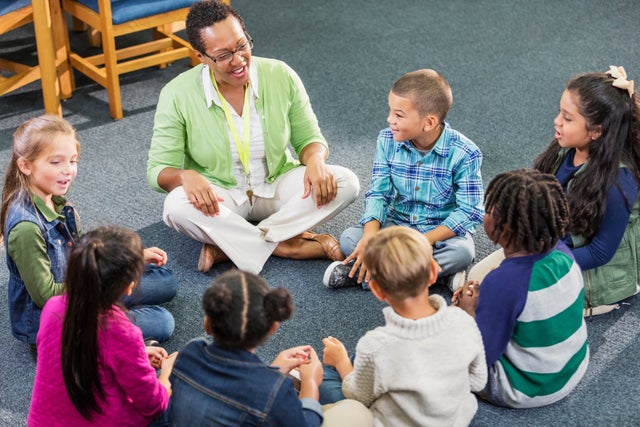Intro to Culture of Care (VIRTUAL: SELF-PACED & BLENDED)
COST IS $950 PER PERSON.
Includes 16 modules broken into 4 tiers. Each module takes approximately 1.5 hours to complete, and includes a one-on-one virtual live session with an RJEd Facilitator. Each training session is very interactive where participants will learn the module content and will be provided the opportunity to engage in discussion (prompted by Appreciative Inquiry questions) and will gain practical experience of restorative justice practices. Upon completion, participants become Certified Specialists and can opt for 2 Master's credits at Colorado State University.
Keep scrolling for more details about the training.
If you are interested in our In-person (face-to-face) or Live Virtual trainings, please contact us at [email protected] for more information.
- Payment Options: Credit Card payments are accepted at check-out on our website.
- Please fill out this Invoice Request if you would like to pay via Direct Deposit (ACH) or check.
- To process your payment via Purchase Order, please complete this PO Form.
- Need our W-9? Please complete this W-9 request.
Please allow 24 to 48 hours to receive registration confirmation and course materials.
Purchased courses are available for and must be completed in 12 months.
Registration is non-transferrable except for special circumstances. Our refund policy can be found here.
The 16 modules are divided into four tiers as follows:
TIER 1 - Principles of Restorative Justice and Proactive Restorative Practices
Learning Objectives:
- Participants will be able to identify and explain the basic principles of restorative justice, focusing on the primary principle of relationships.
- Participants will be able to engage in and train others to facilitate community circles for building a sense of belonging and connectedness in schools, particularly in classrooms.
1. Relationships - Importance of relationships in Restorative Justice and Culture of Care.
2. Basic Principles – Restorative basics: It’s about attitude, doing school “with” students, inclusive relationships across the school, teachers positioning and
theorizing; involving all staff.
3. Collegial Relationships – Collegial relationships at work: Restorative tools are used to build and maintain a healthy community among leaders and staff.
4. Teacher-Student Relationships – Restorative tools are used to build and maintain a healthy classroom community among teachers and students.
5. Community Building Circles – A circle held, generally in the classroom, for the purpose of creating a sense of belonging with a focus on building relationships.
6. Community Norm Setting Circles – A circle held for the purpose of creating a sense of connectedness by having the teacher and students in a classroom co-
create classroom norms.
TIER 2 - Reactive Restorative Practices for Minor Behavior Problems
Learning Objectives:
- Participants will be able to respond restoratively to minor misbehavior problems.
- Participants will be able to engage in and train others to facilitate restorative conversations, restorative circles, and restorative assessments for creating harmony in schools, particularly in classrooms.
8. Classroom Restorative Circles – A semi-formal tool to help teachers and students respond to wrongdoing and conflict as a group.
9. De-escalation and Restorative Assessment – Brief restorative interventions: Referral-based problem solving tools for school staff.
TIER 3 - Reactive Restorative Practices for Major Restorative Problems
Learning Objectives:
- Participants will be able to respond restoratively to major misbehavior problems.
- Participants will be able to engage in and train others to facilitate classroom conference circles and conferences, generally upon reentry of a student after out-of-school suspension, including the pre-conference, conference, and agreement in order to repair harmed relationships resulting from major misbehaviors involving violence and safety.
classroom after being out of school, generally on suspension.
11. Restorative Pre-conference – Pre-conference: Prepare students, staff, and parents so everyone knows the story of what happened before the conference,
and they know the conference format.
12. Restorative Conference Dialogue and Agreement– Restorative conferences: Formal conferences to address specific incidents of serious harm; facilitated by
trained people. This includes specific plans to repair the harm that’s been done, including personalized ways for students to learn new skills/attitudes to avoid
future trouble; allowing for easy monitoring and follow up.
CULTURE OF CARE - Planning to Create a Culture of Care Over a Three-year Period of Time
Learning Objectives:
- Participants will be able to identify and apply to action plan: (a) the stages of implementation of a culture of care, (b) how to blend restorative justice principles and practices with other initiatives, such as, multi-tiered systems of support, trauma informed care, and social-emotional learning under the umbrella of a Culture of Care, and (c) implementation of culturally appropriate relationships and interactions.
- Participants will be able to create an action plan to create a Culture of Care in the school over a period of three to five years.
14. Blending Current Practices with Restorative Justice – A plan for how to blend multi-tiered approaches like RtI, PBIS, and MTSS with Restorative Justice.
15. Culturally Appropriate Relationships – Using Restorative Justice principles of building and maintaining relationships and exercising holistic care to create a
Culture of Care.
16. Action Plan – Using the strengths-based process of Appreciative Inquiry, what steps could we take to move from where we are as far as implementing
restorative justice to where we could ideally be in creating a Culture of Care based on Restorative principles and practices.

